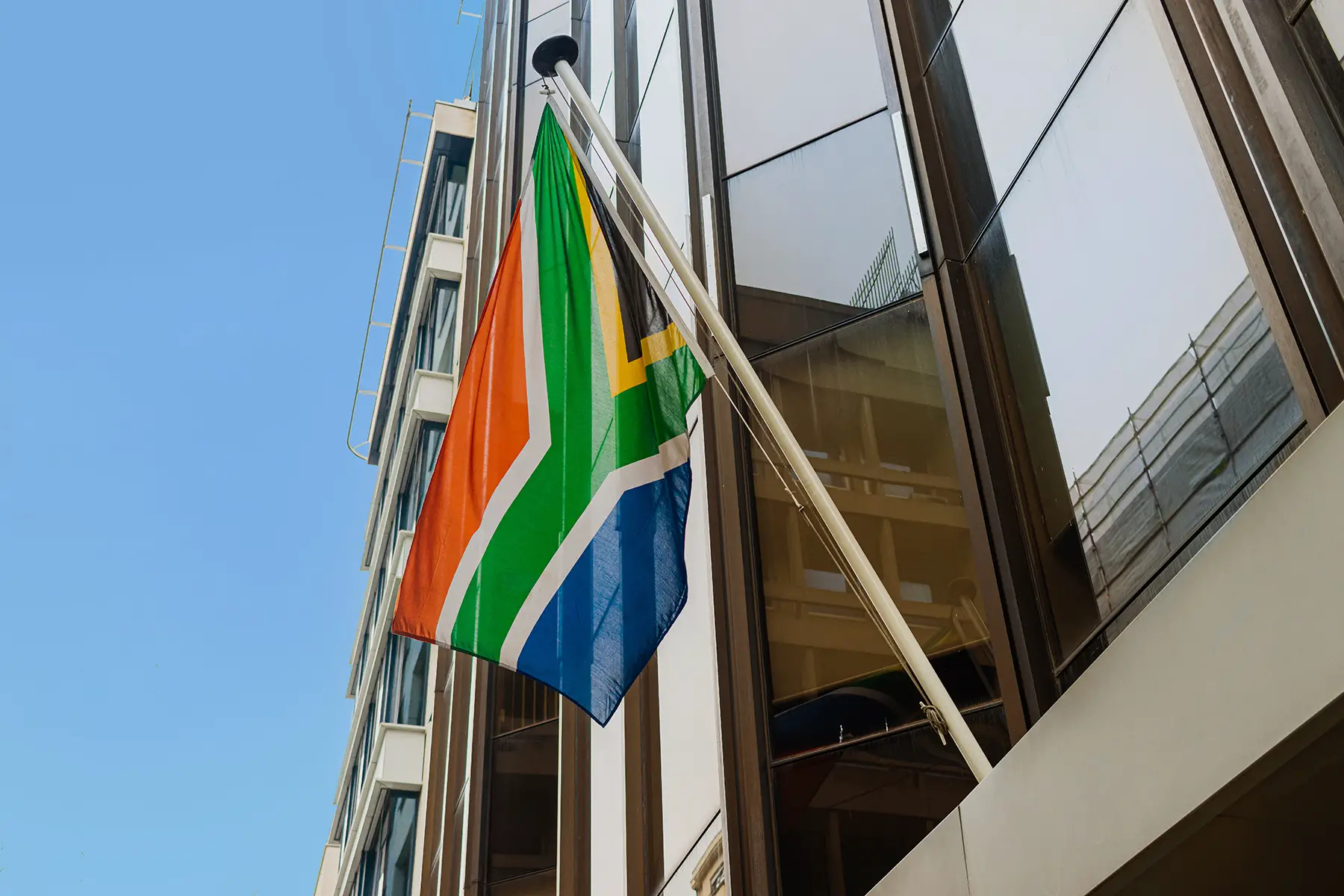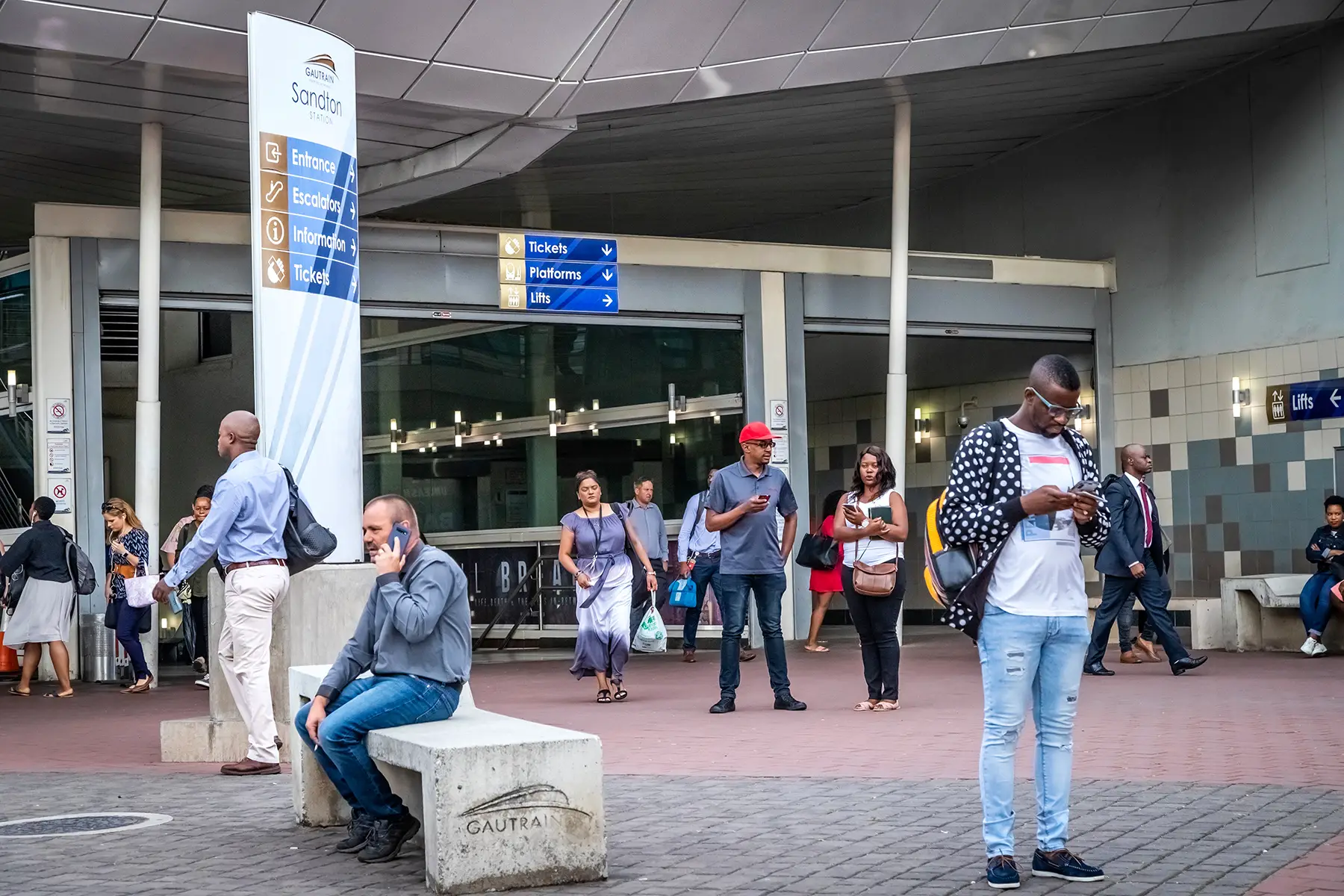Studying in South Africa isn’t just about earning a degree – it’s about accessing a world-class education from the continent’s best universities. With renowned institutes, diverse programs, and qualifications recognized across the globe, choosing to study in South Africa could be the smartest move you make for your future.
So, where do you begin? From visa requirements to tuition costs, application steps, and student life, this article covers everything you need to know to make your dream to study in South Africa a reality.
Let’s get started:
Sirelo
It’s no secret that moving abroad can be stressful. Sirelo’s team of removal advisers is here to help. They provide five free quotes from international shipping companies so you can find the best options at the best prices. Take the stress out of your relocation to South Africa with Sirelo.
Higher education in South Africa
South Africa’s higher education system is not unlike that of many other countries. Students typically enroll in degree programs from the age of 18 or 19 after completing 12 years of prior schooling. The academic year consists of two semesters, running from February to June and July to November or December. In between, there are approximately three weeks of vacation.
There are three types of public higher education institutions:
- Traditional universities
- Technikons and universities of technology
- Comprehensive universities
Many of these are well-respected and attract students from around the world. In fact, in 2024, South Africa was named the world’s 19th top destination for international students, drawing 1.4% of the global student interest. This placement is comparable to destinations such as Switzerland and Denmark, which ranked 17th and 18th, respectively.

Four of South Africa’s universities are ranked among the top 10 Sub-Saharan Africa University Rankings 2024, including the much-coveted top three. These are:
- University of Johannesburg (1)
- University of Pretoria (2)
- University of the Witwatersrand (3)
- University of KwaZulu-Natal (10)
Degree programs in South Africa
Graduate degrees
Students in South Africa have many options to pursue higher education. The country’s graduate degree programs include the following:
- Higher Certificate programs are professionally oriented courses with general subjects, which typically take one year to complete.
- (National) Diploma programs are also profession-oriented and usually require three years of study.
- Bachelor’s degrees can either be professionally oriented or research-oriented programs. These generally take three to six years to complete, depending on the field of study. For example, commerce, humanities, and science take three years, and medicine and veterinary sciences require six years.
After successfully completing their studies, students can enter the workforce or continue their studies. Only those with a bachelor’s degree can do postgraduate degree programs.
Postgraduate degrees
Some South African universities offer Honor Degrees after the bachelor’s program. Also known as postgraduate bachelor’s degrees, these are more in-depth courses that require one additional year of studies. Admittance usually involves an above-average level of academic skills and accomplishments in the regular bachelor’s program.

That said, most research-oriented graduates continue on to earn their Master’s Degree. Depending on the field of study, these programs take one or two years and require students to write a thesis.
After that, academically gifted students can choose to pursue their Doctorate or PhD degree, which takes at least two years. Next on the career ladder are Postdoctoral Research Fellowships and tenured posts. However, placements are few and hard-fought for.
Qualification levels in South Africa
Students in South Africa can earn certificates, diplomas, and advanced degrees. All levels of education follow the standardized National Qualifications Framework (NQF), ensuring consistency, quality, and comparability of qualifications.
The NQF consists of 10 qualification levels: the first four relate to high school grades 9 to 12 or vocational training, levels five and six comprise higher education certificates, and levels seven to 10 indicate university degrees.
| Level | Qualification |
| 1 | Grade 9 |
| 2 | Grade 10 and National (vocational) Certificates level 2 |
| 3 | Grade 11 and National (vocational) Certificates level 3 |
| 4 | Grade 12 and National (vocational) Certificate level 4 |
| 5 | Higher Certificate and Advanced National (vocational) Certificate |
| 6 | (National) Diploma and advanced certificates |
| 7 | Bachelor’s Degree, advanced diplomas, and postgraduate certificates |
| 8 | Honor’s Degree, post graduate diplomas, and professional qualifications |
| 9 | Master’s Degree |
| 10 | Doctor’s Degree |
General requirements to study in South Africa
It is important to know that compliance with the minimum requirements does not guarantee a place at the university. Each university has a specific number of spots for undergraduates and often requires a selection process depending on the availability of places, academic results, and other entry qualifications.

However, the general requirements for studying in South Africa include the following:
Qualification requirements
Students pursuing higher education must have their high school diploma (or National (Senior) Certificate).
Other qualification requirements depend on the degree program. For example, (National) Diplomas often require a Higher Certificate or NSC, while master’s programs demand an Honor’s or Bachelor’s Degree. It’s recommended you check the university’s website for actual qualification requirements.
How to get overseas qualifications recognized
If you have foreign diplomas or degrees and want to study in South Africa, there is an easy way to get your qualifications recognized.
You can apply for the procedure online at the South African Qualifications Authority (SAQA). Regular applications take up to 30 working days, but you can select urgent or priority processing for an extra charge.
First applications cost R1,700, plus a R320 screening fee. Any qualification evaluation after that costs R850. Should the SAQA deny your application, you can file an appeal for R2,190.
For more information, visit the SAQA website or check out this YouTube video.
Visa requirements
Foreign expats must have a student visa to study in South Africa. You can apply for one at the nearest South African embassy, mission, or consulate in your home country. If you are already in South Africa, you can also file an application with the VFS Center nearest to the educational institution.

You will need to provide the following documents:
- Completed Form BI-1738
- Valid passport (must be valid for at least 30 days after the expiry of your studies)
- Proof of financial means (e.g., bank statements)
- Proof of health insurance
- Cash deposit equal to the value of a return ticket
- Medical and radiology reports
- Official letter from the educational institution where you intend to study confirming provisional acceptance and the duration of the course
- Police clearance certificate from each country you lived in for 12 months or longer since the age of 18
If you are an African national, you must also provide a statement from your government declaring they take full responsibility for your actions and they’ll pay all costs if it’s necessary to deport you.

Writer and local expert
Tracy Melass
Insider tip
Student visas can be denied if your study placement displaces a South African citizen or resident.
Learn more about the application process and costs by reading our article on student visas in South Africa.
Language requirements
If you are interested in studying in South Africa, you will definitely need to be proficient in English. While less than 9% of the population has it as a first language, English is the predominant language of learning at most universities.
That said, some former Afrikaner universities still provide coursework primarily in Afrikaans. Other campuses offer degree programs in the local Indigenous African languages. Make sure to inquire in advance about the teaching language at your prospective university.
Interestingly, many universities also offer vocation-specific language courses that teach students the words and phrases they need to interact with different people during their professional careers.
How much does it cost to study in South Africa?
Compared to some countries in Europe, where studying is heavily subsidized, university tuition fees are relatively high. Then again, study fees are quite affordable compared to those in the UK and the US. In 2023, the average cost for a bachelor’s degree in South Africa was R55,900 per year.

Most higher education institutes have a tiered fee structure where they charge more for international students. For example, Pretoria University asks for double the tuition, while Cape Town University charges around 65% more. Non-South African students must also pay an international levy (except for research master’s or doctoral degrees).
On top of tuition fees, you’ll have to pay for accommodation and study materials, along with general day-to-day living costs. You can find out more about the average cost of living in South Africa by reading our dedicated country article.
Study grants and funding available
All affordability is relative to your income and assets. If you need help paying for tuition fees, South Africa has several study grants and bursary options available. Funding includes:
- Government-funded loads and bursaries – low-income South African students can apply for the National Student Financial Aid Scheme (NSFAS)
- Study grants from non-profit trust foundations – many trusts offer bursaries and scholarships to disadvantaged students (e.g., the Ikusasa Student Financial Aid Programme (ISFAP) and the National Research Foundation (NRF))
- Corporate bursaries – some (international) companies provide study scholarships and bursaries programs to (prospective) employees (e.g., Investec and Toyota SA Motors)
- University scholarships – higher learning institutes often offer financial aid to eligible students
You can find more study grants and scholarships by searching for them online. For example, portals like Bursaries South Africa and StudyTrust list funding available for the current academic year.
Study applications in South Africa: how to apply
University applications generally open in May or June and close in August. Students will typically receive their acceptance or rejection letter between September and October.

There is no central application procedure and applicants will need to contact each university individually. Depending on the degree program, there will be different requirements. However, applications commonly ask you to provide the following paperwork:
- Secondary education or academic qualifications
- Valid passport or ID
- Student visa, if necessary
- Personal statement or motivation letter, if necessary
All documents must be in English or translated into English using an official translation service.
Most higher learning institutes in South Africa will charge a small, non-refundable application fee, ranging from R100–400.

Writer and local expert
Tracy Melass
Insider tip
You should send copies of your original qualifications, as the university will not return them.
What’s student life like in South Africa?
Full-time students in South Africa are expected to spend a significant portion of their time on lectures, seminars, practical learning, and exams. However, all work and no play make people boring, and most universities have vibrant social scenes and many student associations you can join.

Student life in South Africa varies markedly in different parts of the country and across the various types of institutions. In larger cities, the social and cultural scene typically centers around the campus halls, with clubs, parties, and events on offer. Most students also have a social life outside of the university sphere.
Given the country’s buzzing community and lifestyle, there is much to keep you busy –socially, culturally, and sporting-wise – both on and off campus.
What student accommodation options are available?
Students have a wide range of accommodation options in South Africa.
At most traditional universities, on-campus residence halls offer a convenient and immersive student experience, with easy access to academic facilities. Indeed, staying in residence is often seen as an extension of one’s university education and a chance to build up a close-knit community.
That said, not everyone can afford to stay in residence halls. Cheaper accommodation can be found off-campus in the form of private rental flats, shared student houses (known as digs), and student apartment complexes like Respublica and Thrive.
Another option is homestays. These rooms in shared apartments allow students to live with local families and can offer a supportive environment for those adjusting to a new city or culture.
Whichever option you choose, it’s important to take cost, location, safety, and personal preferences into account. If you’re only staying in South Africa for a short time or need a place to stay temporarily, it’s also worth checking for rooms and apartments on sites such as Airbnb or short-term rentals through letting agents.
Can you work while studying in South Africa?
Students are typically allowed to have a side job. However, keep in mind that universities often have attendance requirements, and you cannot miss too many lectures.

If you’re in South Africa on a student visa, you can only work part-time for up to 20 hours per week. If you want to work more hours or take up full-time employment, you’ll need to apply for a work permit and change your visa status accordingly.
Volunteer work
Some students like to spend their free time giving something back to the community. In South Africa, universities (e.g., University of Cape Town) will often collaborate with NGOs, schools, and social projects to offer volunteer opportunities. There are countless of volunteer projects, for example, in:
- Working with animals, children, or victims of domestic violence
- Helping out in hospitals and healthcare centers
- Combatting climate change and taking part in environmental campaigns
- Collecting and distributing food
You can also find volunteer opportunities at organizations like Community Hours, a non-profit organization that connects people all over South Africa.
Student healthcare in South Africa
Many South African universities require students to have health insurance as part of their application process. Likewise, international students will need medical insurance to qualify for a visa.
While public healthcare offers free to low-cost medical treatment, the quality is relatively poor because of too few doctors, outdated facilities, and long waiting times. Students who can afford it should consider taking out private coverage.

South Africa has several companies that offer health plans for students, often at a discounted rate. These work similarly to regular health insurance policies, though they are usually connected to a particular health clinic.
If you’re in the country for a short period, you may benefit better from global health insurance.
Student exchange programs
Most South African universities have their own study exchange programs that offer the chance to study in another country for a semester (or sometimes for a year) as part of the degree course. For example, the University of Cape Town boasts an extensive network of partners for global exchanges across various disciplines.
In 2023, around 12,000 South African students were studying abroad.
You can find details of exchange programs through individual university websites. There are also several scholarships and bursaries to offer financial assistance for low-income students interested in participating in a study exchange.
Career prospects after graduation
Unfortunately, South Africa grapples with high youth unemployment rates, and the job market is highly competitive. According to the 2022/23 Student Confidence Index, 90% of graduates want to live and work overseas.

The prime location for job hunters is Johannesburg, as this city offers the most employment opportunities and higher salary prospects. Cape Town is a close second. Provincially, you will find the most job opportunities in Gauteng, followed by the Western Cape and KwaZulu-Natal. The Free State, Limpopo, and the Northern Cape had the fewest vacancies.
If you’re in South Africa on a student visa, you must exchange it for a work visa in order to stay in the country. This typically requires you to have secured a job offer already. For exceptionally qualified candidates, there is the option to apply for a Critical Skills Work Visa, which allows successful applicants to look for work after moving to the country.
Introspective offers additional tips to navigate the South African job market.
Useful resources
- National Department of Education – official government website with basic information on education in South Africa
- Careers Portal – for-profit website with information for university students in South Africa
- SAQA – official government website where you can get your foreign qualifications verified










